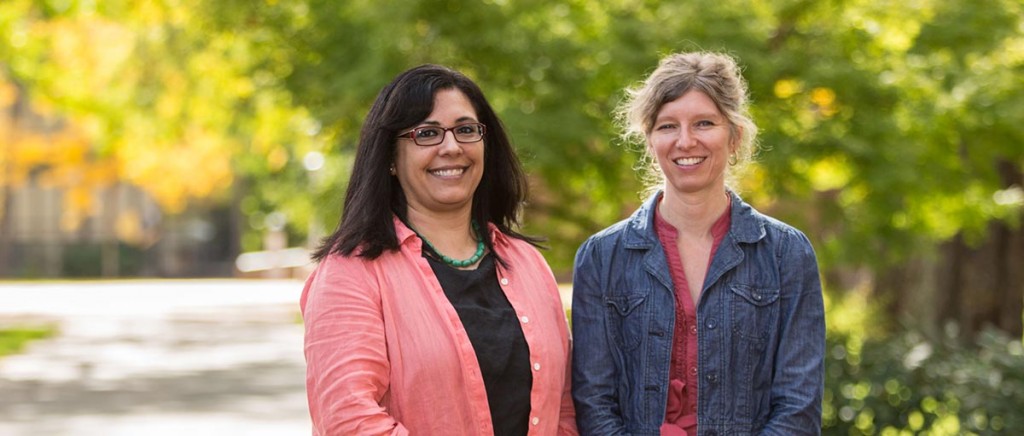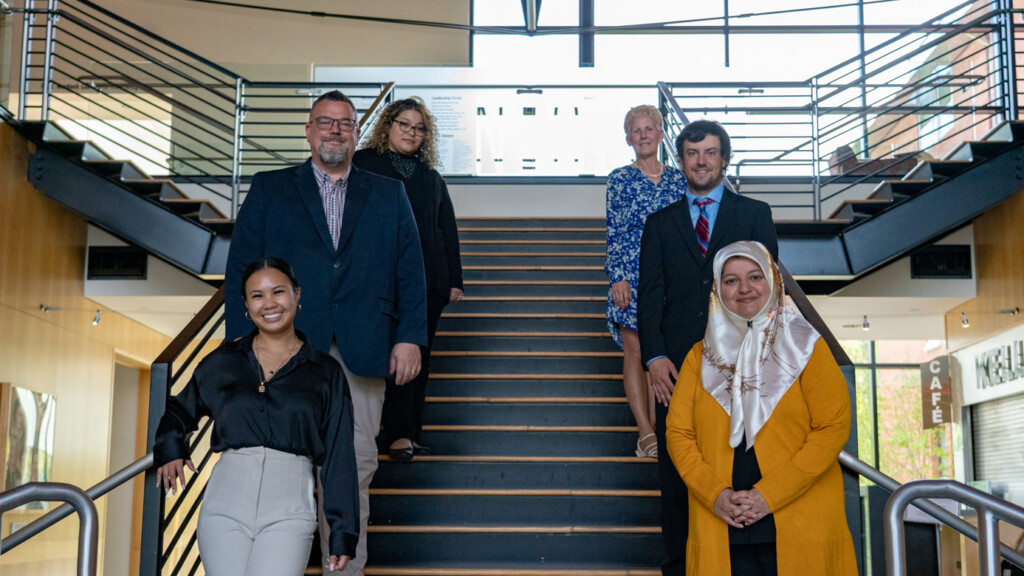Page 55 • (761 results in 0.057 seconds)
-
In honor of Women’s History Month, we are “commemorating and encouraging the study, observance and celebration of the vital role of women in American history.” ( https://www.womenshistorymonth.gov/ ). This exhibit includes a short list of just a few women’s first achievements in the past six…
either. Hernández’s debut depicts the struggle inherent to immigration today, combining both narrative essay and bilingual poetry”– provided by publisher Broad strokes : 15 women who made art and made history (in that order) (N8354.Q47 2017) “This book chronicles the lives and art of 15 often overlooked female artists from the Renaissance to the modern day”– Provided by publisher.; “Historically, major women artists have been excluded from the mainstream art canon. Aligned with the resurgence of
-
8:15 a.m. | March 8 | Karen Hille Phillips Center for Performing Arts Who: Bob Ferguson Title: Washington State Attorney General Bio: Bob Ferguson is Washington State’s 18th Attorney
diaspora living in Western countries. This led him to analyse war and post-conflict reconstruction in the light of the social networks and economic strategies developed by refugees and migrants, and – more generally – to address theoretical and methodological issues related to globalisation. Among his current research interests: the political economy of reconstruction in Afghanistan as an example of emerging forms of sovereignty and global governance; asylum seekers and refugees in Europe; migrants and
-
Global health: Why does it matter? If public health was a fashion show, global health would be the new black. It’s hot. But what is global health, exactly? And why does it matter? Mark Twain once complained that everybody talks about the weather but nobody…
, educating mothers-to-be about safe birth practices, serving a stint in a remote clinic, responding to foreign medical emergencies and the like. It also was about often watching in frustration as many died from diseases that easily could have been prevented or treated in the United States or Europe. Generally speaking, it was a poorly funded, neglected field handled by a relatively small cadre of dedicated folks working on shoestring budgets. The answer to the Why does it matter? question was that, back
-

TACOMA, WASH. (Sept. 28, 2016) – The Pacific Lutheran University Department of Languages and Literatures will host the Tournées Film Festival this fall for screenings of nine recently released films representing a wide variety of cultures and historical periods. (Film trailers and descriptions below.) A…
Martínez Pessi. In 1983 a group of 154 children aged from 3 to 17 years old traveled alone to Montevideo on a flight coming from Europe. They were children of Uruguayan political exiles who were unable to come back to their own country. This action sent a clear political message for human rights defense and for freedom, but it also affected these children’s lives. They will always remember how they were received in Uruguay–a crowd singing altogether, “Your parents will come back.” This moving
-

By the time she earned the university’s highest degree, she left with more than a shiny new title. The nurse practitioner for Providence Medical Group at Hawks Prairie Internal Medicine in Lacey,
to study finance because it aligns with her professional goals. “Financial markets and strategies are important in changing people’s lives and crucial in modern societies ,” She said. “I believe this will enable me to help develop my country.”“I am very interested in Nonprofit where I can connect with people to improve the quality of life.” Andre said, “I did not come here alone, a lot of people guided me and made this journey with me, which has been essential in my success so far. I want to have
-

Q&A With Professor Michael Stasinos and Associate Professor Bradford Andrews By Shunying Wang ’15 PLU Marketing & Communications Student Worker TACOMA, WA (Jan. 16, 2015)—In a groundbreaking merger of art and anthropology, Pacific Lutheran University Art Professor Michael Stasinos has been developing important historical illustrations…
actual painting. I drew on the plastic, and if the figure didn’t work at one place, I erased it out and rearrange and such. When it was finally ready, I would then transfer it onto the actual painting (see image at left). At the very last stage, I used Photoshop for minor retouches. In early time, for instance, if the sky on the painting was not bright enough, the painter would have to go back and physically paint the sky brighter. So now with the help of modern technology, I could use Photoshop for
-

In recognition of the 500th anniversary of the Lutheran reformation, throughout the 2016-17 academic year a wide range of academic, community and artistic events at Pacific Lutheran University will address questions and concepts relating to Re•forming. UPCOMING EVENTS Second Annual César Chávez & Dolores Huerta…
professor Dr. Douglas Oakman, Ph.D. will offer comments during the musical presentation. Illuminations from The Saint John’s Bible will be featured throughout the program. The Garden of Earthly Delights: The Song of Songs in the Early Synagogue March 23 | 7:30 p.m. | Anderson University Center (Scandinavian Cultural Center) While most modern scholars read the biblical Song of Songs as a collection of secular love poems, in antiquity it was understood to be an encoded account of God’s love for God’s
-

The world of business is always changing. Markets trend up and down, technologies evolve, and ethical standards constantly progress. To many private-sector veterans, this rate of change can be daunting, but to students and faculty members at Pacific Lutheran University’s School of Business, they are…
not only on the skills students will need in the future, we also focus on the timeless skills that we know are critical.” “Students need to be ready for 2030 via their skills, though they also need to be highly effective communicators, teammates, innovators and leaders,” continues Mulder. “We seek to help students stay ahead of the curve, and as we see in the success of our alumni, a PLU business degree is a great foundation for an excellent career.”A Modern Approach Somaye Nargesi, a third-year
-
Amanda Dodson, Senior Capstone Seminar About 37% of U.S. adults are diagnosed with Metabolic Syndrome (MetS), which is the combination of metabolic risk factors including insulin resistance,
David Yun, Senior Capstone Seminar The unique molecular composition and different physical properties have increased the use and interest of nanocrystal technology within modern-day society. Specifically, the control of size and shape has been of high interest for applicational uses like drug delivery, electronics, and optoelectronics. Nanocrystals are comprised of tiny atoms that are less than 1000 nanometers in size that vary in their size, shape, and configuration. In this paper, we are concerned
-
What are you doing next Summer? If you're interested in history, innovation studies, or a range of allied topics, you may want to consider a Benson Student-Faculty Summer Research fellowship, which
and the local business community in Portland, Oregon, in order to understand the impact of the business community on queer activism in the 1990s and beyond. The project made intensive use of archival materials in the Portland area, including records from community spaces, local businesses, political groups, activists, and consumers. The project also engaged the historiography of modern capitalism, local business history, and civil rights movements. Katherine’s faculty sponsor was Dr. Rebekah
Do you have any feedback for us? If so, feel free to use our Feedback Form.


